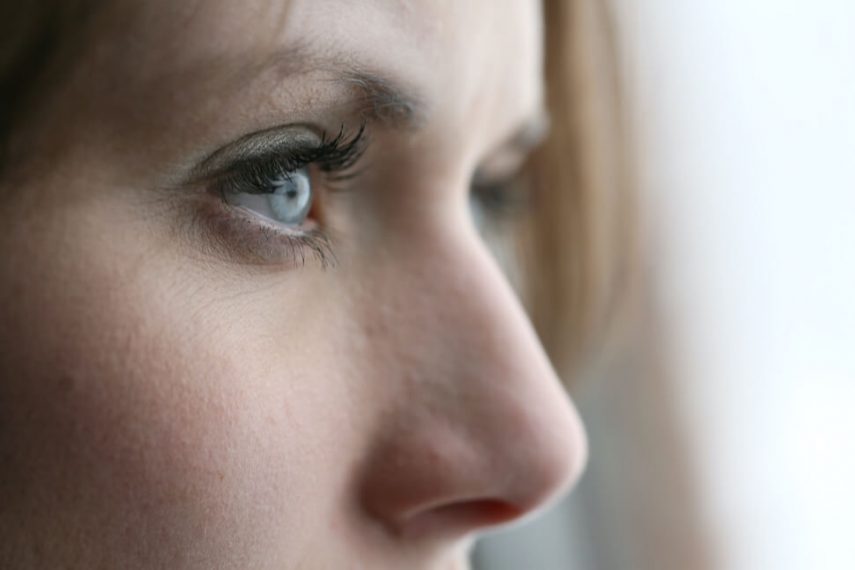My Loved One’s Delusions Are Scaring Me—What Do I Do?

Delusions are characteristic of psychosis. Certain serious mental illnesses cause delusions, often together with hallucinations. They are troubling, disorienting, and disruptive to the person experiencing delusions, but also to their loved ones. Family members of people with psychotic illnesses must take steps to manage their own mental health, to cope and to support their loved ones in getting treatment for delusions.
Delusions can be pretty scary, both for the person who has them and the people around them. If you have a loved one convinced they are being followed or spied on or who thinks there is a plot against them, their behaviors may become frightening or even threatening. You may not always feel safe.
Treatment for a psychotic disorder is the most important factor in managing these scary delusions. Help your loved one get treatment. In the meantime, and as they work through recovery, be empathetic, provide distractions, and take care of your own needs and safety.
Understanding Delusions
A delusion is a firm, persistent, and false belief. Anyone can have a false belief, but it is only a delusion when it persists in the face of clear evidence to the contrary. No amount of arguing or proof will change the belief. The delusion cannot be explained by culture or religious beliefs.
While they can take any form, delusions tend to fall into certain categories: grandiose delusions of greatness or having superpowers; paranoia, feeling as if someone is after you or spying on you; somatic delusions, believing you are sick or hurt; or delusions of being controlled by someone else.
Delusions are characteristic of psychotic disorders (also known as thought disorders), mental illnesses that cause a person to have difficulty identifying and recognizing reality. These include:
- Schizophrenia;
- Schizoaffective disorder;
- Delusional disorder; and in some cases,
- Bipolar disorder with psychotic features; and
- Major depression with psychotic features.
For someone who has never experienced a delusion, it is difficult to understand how anyone can be so certain of something that isn’t true. Often the delusions are bizarre and make no sense. If you have a loved one with a psychotic condition, understand that they do believe in these things. They can’t just change their minds or see reality as it is.
Do Delusions Trigger Violence?
Most people who experience delusions will not commit violence. In a study of violent acts committed by patients with mental health diagnoses, researchers found it rare for the violence to be proceeded by a psychotic episode. Just 12 percent of the incidents included someone who had just experienced psychotic symptoms, like delusions. This means that violence with delusions is possible but not common.
Other studies have found that a crucial characteristic of delusions can predict violent behaviors: anger. If delusions trigger anger, the person is more likely to be aggressive or violent. Fear and depression, on the other hand, which are common with delusions, are associated with less violence.
Certain types of delusions are more strongly associated with anger and the potential for violence:
- Being spied on or watched
- Being followed
- Being in an experiment or tested
- Being under someone else’s control
- Being sent messages through media
- Being plotted against
If you have a loved one with angry delusions, it does not mean they will necessarily be violent. However, you should be cautious and take steps to stay safe and to help them be safe and stay out of trouble.
In another study of violent acts committed by patients with mental health diagnoses, researchers found it rare for the violence to be proceeded by a psychotic episode. Just 12 percent of the incidents included someone who had just experienced psychotic symptoms, like delusions. This means that violence with delusions is possible but not common.
Call For a Confidential Phone Assessment.
619-466-0547How to Cope With Scary Delusions
It’s difficult to love and be with someone who has delusions, especially when they begin to get scary. If delusions make your loved one scared or angry, it rubs off on you. Take steps to help your loved one but also to protect yourself and to take care of your own needs.
1. Keep Yourself Safe
While most delusions do not trigger actual violence, it is possible. If you feel unsafe around your loved one, leave or call for help. It is important to be supportive and to provide help if you can, but more important at the moment is your own safety. Once you feel safe again, you can reach out or send someone to assist your loved one and make sure they are secure and get medical attention.
2. Make Sure They Are Getting Treatment
The best way to keep your loved one, and others, safe is to get them in treatment. Psychotic symptoms are manageable and can be minimized and reduced with the right treatment plan, which may include residential care, therapy, and medications.
Mental illnesses that cause delusions are usually serious and debilitating. A residential program is often the best choice. It provides a safe environment and gives residents the time they need to benefit from intensive treatment.
Medications known as antipsychotics are important in managing delusions, but it can take some time to try several types and find the one that works best. Residential treatment also provides time for one-on-one behavioral therapies that will help your loved one learn to understand their delusions and manage the emotions and compulsions they trigger.
3. Avoid Reasoning
Someone with a delusion cannot be reasoned with or talked out of it. Most people feel compelled to try to convince someone they are wrong about delusions. You want to help your loved one feel safe, so you tell them their fears are wrong. This can backfire and cause them to become withdrawn and to feel alienated.
Instead of trying to help your loved one see reality as it is, empathize with their feelings. Tell them you understand that they feel angry, scared, or frustrated. Avoid being judgmental and do not try to discuss the delusion with them or provide evidence to the contrary.
4. Provide Distractions
Distraction can be a powerful tool for someone preoccupied with a delusion. Have ideas prepared for when delusions threaten to get out of control, activities that your loved one enjoys. Pick out their favorite movies or TV shows to binge; play board games; take a walk in the park or engage in a strenuous gym workout.
5. Look for Triggers
As with other kinds of mental health symptoms, delusions may become worse or even be triggered by certain situations. Keep track of your loved one’s worst episodes of delusions to look for patterns. Do they become delusional during stressful times? When they are depressed? In a difficult social situation? If you can recognize triggers together, you can help your loved one avoid or minimize them. Help them use healthy coping strategies when you expect triggers.
6. Take Care of Your Mental Health
Even if you do not have a mental health diagnosis, living with and caring for someone with a delusional mental illness takes a toll. Make sure you reach out for help if you need it. Talk to family or friends about what you are going through, join a support group, and don’t hesitate to talk to a therapist or counselor. You do not need to have a specific mental illness to benefit from therapy. A professional can talk you through this tough time and provide more advice.
Delusions are not usually dangerous. They don’t typically lead to violence or outbursts. There is always a risk, though, and it is certainly scary to hear someone you care about talk about things that are not true. Take these steps to protect both you and your loved one, and most of all get professional treatment.
If you’re concerned about a loved one and believe they may need residential care, we can help. BrightQuest offers long-term treatment for people struggling with complex mental illnesses.





